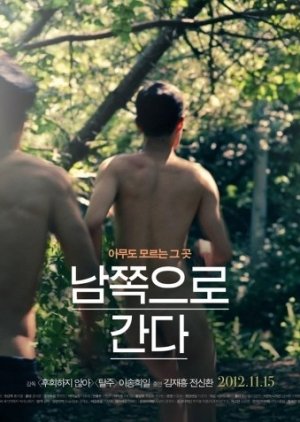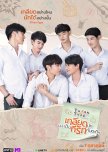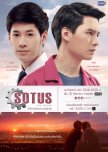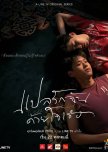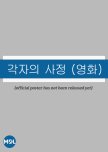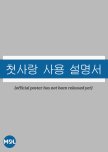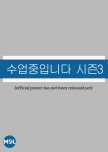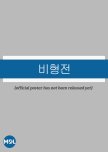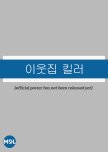
I appreciate this movie
The film is very similar in theme to another Korean film, Suddenly Last Summer, which is repulsion and attraction. But here, the director of such excellent and award-winning films as Night Flight and No Regret, this theme is upgraded almost to the maximum. Two young men have an intimate relationship during their military service and release their sexual energy. Youn Young has now left the army and is not so sure of his orientation and no longer wants to be in the presence of Gi Tae-ho, who has to stay in the army and is very uneasy about losing Young-a. A psychological drama ensues, the plot of which I will not describe, but I want to highlight above all the good work of both actors, they reached almost to the bottom, not only by being naked, but also by rolling in disgusting mud. Life is often cruel and when we lose someone, how often does it make us act desperate, and for that I appreciate the film.Considerați utilă această recenzie?

ACTING/CAST: They can do anger, they can fight, they can wrestle naked, and do drunk. So I guess their acting wasn't too bad.
MUSIC: Unmemorable.
REWATCH VALUE: Nope.
OVERALL: I'm not very fond of crazy, abusive relationships, especially where one actually does something criminal like drug them. Throughout the show I was hoping that maybe it would have some redemption, that it would end happily like Suddenly Last Summer...
Considerați utilă această recenzie?

The end of the trilogy: reasons for debate and controversy
The trilogy by Korean director Leesong Hee-il, known as 'One Night, Two Days', (백야), began with the short film 'One Night, later expanded to a 75-minute film entitled 'Baekya' ('지난여름, 갑자기 '/'White Night' and followed by the short 'Suddenly Last Summer' (지난 여름, 갑자기/'Jinanyeoreum, gapjagi'), concludes with the medium-length film 'Namjjokeuro Ganda' ('Going South' /남쪽으로 간다), all from 2012, and narrating three unconnected gay-themed stories together.The strength of Leesong Hee-Il's cinematography, by itself, and continually, finds an audience for his works. Not only because of the naturalness and simplicity, at the same time as the complex way of exposing homosexuality and human relationships and conflicts, which allows us to reinterpret the essence of the South Korean LGBT+ collective (equally global), from the perspective of some of its representatives, but also in the elegance of the language, the cinematographic resources, the intelligence of the film narrative and the intellectual and human wisdom that flows with astonishing clarity and directness.
It is, furthermore, and above all, the director's ability to build powerful stories due to their humanism, which penetrate the personal imagination, especially of the members of said community, never to abandon it again.
Who who has seen the trilogy does not suffer as their own the desperation and anguish of a gay person who drags, like a heavy burden, the emotional and spiritual suffering, more than physical, caused by a homophobic attack and today, after years , returns to the scene of the events to continue judging the society that did nothing to condemn barbarism, only for the fact that the victim is a homosexual? Who has not wanted to be the companion of said person in the search not only for love, but also, and above all, for the necessary spiritual peace and answers that give meaning to their life, during a long, cold night in Seoul?
Who was not on the cruise ship that crosses the Han River while a boy, a minor, blackmails his teacher, 17 years older, whom he threatens to get out of the closet if he does not give in to his demands to spend a few hours on a hot day in his side? Who has not understood the dilemma in which the teacher struggles, caught between desire and responsibility, between desire and ethics, between good and evil? Who has not forgiven the student for blackmailing the teacher, after seeing him suffer and at the same time shout his love and happiness, while, excited, he talks to the fish or makes the teacher listen to his favorite music after placing the headphones over his ears? ears? Who has not made their own the suffering, pain and anguish, but also the joy and the touch of happiness, of each and every one of the characters that inhabit their stories?
'Going South' follows two men on a journey that, despite the short's title, has no defined direction or destination. Gi-Tae (Kim Jae-Heung) and Jun-Young (Chun Shin-Hwan) met during their mandatory two-year stint in the Korean army. From the first seconds, the existence of a secret to be revealed around these two people and their respective internal struggles becomes evident.
Its director once again exposes a constant dichotomy in the relationships of its protagonists, but now elevates it to a higher plane by placing its narrative heroes involved in the South Korean army. Shocking are the deeply subtle, uncomfortable, and highly problematic questions it raises about homosexual relationships, military service in particular, and that nation's society as a whole.
While Jun-Young, now demobilized, hides or completely denies his homosexuality, Gi-Tae, who still has some time left to graduate, is not afraid to acknowledge it and even enjoys celebrating it, despite completing his military service in a nation where, according to article 92 of its Military Penal Code, it considers sexual relations between members of the same sex as "sexual harassment", punishable by a maximum of one year in prison.
Jun-Young is taking Gi-Tae back to base after his last leave. The atmosphere around them is overloaded by the demands of one and the refusal of the other to give in. Jun-Young is quite harsh on his friend during the ride.
The characters in the medium-length film inhabit a space where they meet somewhere in the middle. It is at this moment that the director uses the camera lens to "steal" the characters' emotions and show human complexities.
One having realized that he does not want to continue the sexual relationship with his friend and asks him not to contact him again, the other is not willing to let him go, and clings to him. Inadvertently, the soldier takes the opportunity to put sleeping pills in Jun-Young's coffee. As soon as the drugs take effect, he takes the wheel and heads south, or nowhere in particular.
When Jun-Young finally wakes up, he is furious, but also furious is Gi-Tae, who confronts his former lover/friend about his broken promises.
The fight, both emotional and physical, reveals two aspects to consider: on the one hand, Jun-Young completely denies not only his former feelings for Gi-Tae, but also his homosexuality. Jun-Young dismisses his previous relationship, alleging that he had sexual encounters with his friend out of the need to fill the void of soldier's loneliness, something common for soldiers while doing military service.
And secondly, Gi-Tae is clearly losing control and has crossed the line. His erratic, illegal behavior is not justifiable, and yet we sympathize with him more than with Jun-Young, because his pain is so tangible.
Initially calm and serene, Gi-Tae's feelings are increasingly expressed through physical things, such as photographing Jun-Young in the middle of making love for the last time, not to blackmail him but to materially record the feelings that his lover does not want to admit with words. He subsequently gets into a wild mud fight with Jun-Young that nearly ends in blood and he drinks bottle of beer after bottle. His state of increasing intoxication leads him to dance alone like a lunatic in a dark highway tunnel, while music blares from the car speakers.
You can't blame Jun-Young for wanting to distance himself from Gi-Tae, who has major emotional issues that may run deeper than this particular rejection. And yet, one must ask: how desperate must one be to go AWOL from one's military base and nearly kidnap another person, acts that can only have serious repercussions?
Open-ended like all parts of Leesong Hee-ill's trilogy, 'Going South' feels more gloomy and suffocating than the two previous films, denying the viewer a journey towards the spiritual peace and happiness they dreamed of, at least from one of the characters.
As in the rest of the three pieces, the film tells a story of great visual and auditory beauty, but perhaps the most important thing is the emotional depth. The raw honesty of the film's narrative – centered on the often deeply problematic feelings of its characters, all asking difficult but very real questions – is commendable.
The finished compositional gear, the composition between musical form and film text brought to the screen, the treatment of time and changes in point of view, are formal innovations that demonstrate the filmmaker's vocation to always renew himself, supporting the three pieces that make up the trilogy, which reflect on the human condition, the complexities of the human being, the responsibilities and ethics of the gay man of our days, the homophobic ambushes that stalk him at every step, the feeling of emptiness caused by the so-called epidemic of loneliness gay, the emotional and mood disorders of homosexual men, the constant search for happiness, which implies, in turn, the fight for their human rights, and the encounters between the individual and the collective.
Note: The reviews of the remaining pieces of the trilogy, in MDL, can be found on the page dedicated by the virtual platform to each of them.
Considerați utilă această recenzie?

Această recenzie poate conține spoilere
Keep Going South
It took me a while to write this because I was angry. This film affected me to the point of wanting to reach through the screen and punch Young. Tae should have been the one with the rock above Young, smashing his skull in. Yes, I was that angry.Perspective:
It's 2012 and homosexuality is still considered a crime. So it's understandable that Young would be hesitant to continue a relationship with Tae for everyone to know. It's 5 months since Young was discharged and Tae still has some time to complete his service. On his last leave, he visits Young. Young, driving Tae back to compound, tells him coldly, "Don't contact me again." Tae, hurt and grappling with the change between them, decides to drug him and desert. It is revealed through a series of conversations and tussles, that Young had sent a letter telling him that he liked him as a "person". How much more humiliating could he have been? Young was the one who approached Tae. Enticed him and encouraged him to have sex. Young was the one who told him he liked him. Tae believed. He fell deeply in love with him. During the 5 months they were apart, Young is denying his homosexuality, their relationship and has a girlfriend. He says to Tae, "he feels nothing for him, it was the army." Here, he as heartless as they come. The denial, selfishness and cowardice Tae endures, finally rips through him. He has a point to prove. He asks for sex for the last time, in exchange for the letters Young had wrote to him. Sitting on top, Tae rides him and as he senses Young about to ejaculate, he reaches for his small camera and snaps Young's face. He has his proof. He would not have enjoyed it, if he did not feel anything for him. After another hard to watch scene of them fighting in the mud for the camera, Young gives up. After all this, he still chooses to be 'straight'.
This is what causes the anger. Had he taken the time to break things off properly with Tae, rather than discarding him like dirty rubbish, Tae might have had a better chance of handling it. The film ends with Tae
telling Young to get lost. Dancing defiantly and more than a little drunk, with the music glaring, he chooses himself. It's as if he's saying, I know who I am. I will live true to myself. You didn't break me. Young, continues to walk in the opposite direction. Going back to the army would only remind him more of Young and what he thought they shared.
Tae's anguish and emotional ride he took us through was felt. Kim Jae Heung shines. He carries the film. Jeon Shin Hwan had the easier role and I'm still left wanting to see when he would show up to fully deliver. He seems flat against Kim. His true rage only evident when he raises the rock to hit him. Here, Kim steals again, crying in the mud, controlled by the betrayal and pain he feels, he cries out, " Don't treat me like I'm invisible. You had a hard on!"
The short is good and worth a watch. At least once.
Considerați utilă această recenzie?

